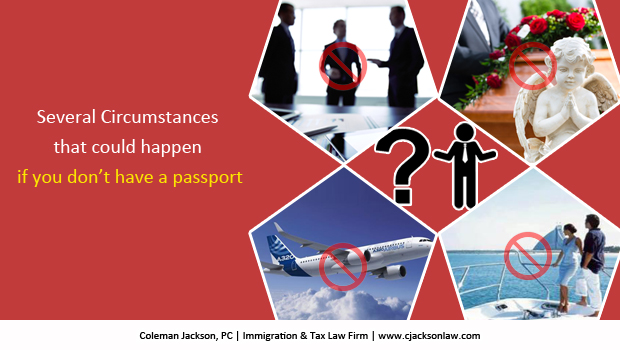By: Coleman Jackson, Tax Lawyer
December 21, 2015
The Fixing America’s Surface Transportation Act (FAST Act) became U.S. law on December 7, 2015. It deals with more than the repairs and upkeep of the nation’s roads, bridges and other surface transportation. Taxpayers beware; the FAST Act is not just about transportation; so don’t let the title fool you!
Two sections of the FAST Act should be of interest to all U.S. taxpayers as follows:
- Section 32101 authorizes the U.S. Treasury or Internal Revenue Service to refer taxpayers with certain outstanding tax obligations to the U.S. Department of State for the purpose of revocation or denial of U.S. passports for certain unpaid taxes; and
- Section 32102 authorizes the U.S. Treasury or Internal Revenue Service to enter into one or more qualified tax collection contracts for the collection of all outstanding inactive tax receivables. That mean private debt collectors could be hired to help the government collect unpaid taxes.
Without a valid U.S. Passport, international travel would be pretty much impossible for a delinquent taxpayer. Unwelcomed calls from debt collectors attempting to collect unpaid taxes would not be an ideal tax holiday. Taxpayer’s affected by these FAST Act tax provisions may be prohibited from traveling for pleasure, health reasons, emergency, family matters, business matters or any other reason; if such travel requires a U.S. passport. If the intent of the FAST Act tax provisions is for taxpayers to prioritize getting their back taxes paid or making appropriate payment arrangements with the IRS for payment of unpaid taxes; the Tax Provisions in the Fixing America’s Surface Transportation Act is sure to get delinquent taxpayer’s attention.
This tax law blog is written by the Tax & Immigration Law Firm of Coleman Jackson, P.C. for educational purposes; it does not create an attorney-client relationship between this law firm and its reader. You should consult with legal counsel in your area with respect to any specific immigration, IRS tax problems and other income tax, gift tax, or estate tax issues or your particular set of circumstances impacting you, your family or business.
Coleman Jackson, P.C. | Immigration & Tax Law Firm | English (214) 599-0431| Spanish (214) 599-0432


